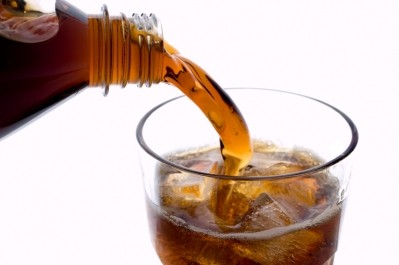18% soda tax would lead to five-pound annual weight loss: Study
The study comes as the idea of taxing soda at a federal level has slipped off the political agenda. However, momentum has increased in recent weeks for taxation of less healthy foods and drinks at a state level, often explicitly with the dual purpose of tackling ill-health and helping to narrow states’ budget deficits.
In Philadelphia, Mayor Michael Nutter has proposed a two-cent per ounce tax on sugared beverages. Kansas Senator John Vratil has just put forward a proposal for a penny tax per teaspoon of sugar in soda; and soda tax is back on the table in New York, where Governor David Paterson has suggested a penny-per-ounce soda tax in his budget plan for the second year in a row.
Drawing on dietary information for 5115 people taking part in a 20-year study, researchers from the University of North Carolina were able to compare relationships between price, energy consumption and weight by looking at how real price changes over time have affected consumption of certain foods and drinks.
“We report that an increase in the price of soda and pizza is associated with a significant decrease in daily energy intake from these foods,” they wrote. “…Our findings suggest that national, state, or local policies to alter the price of less healthful foods and beverages may be one possible mechanism for steering US adults toward a more healthful diet.”
The researchers found that the inflation-adjusted real price of soda and pizza fell steadily over the 20-year period, with the largest price decline observed for soda, which fell from $2.71 for a two-liter bottle, to $1.42, a 48 percent decrease.
They found that the lower the price, the higher the probability that a study participant would consume the product.
They said that taxation would “not solve the obesity epidemic in its entirety and may face considerable opposition from food manufacturers and sellers” but added that it could help reduce energy intake, aid in weight loss and reduce diabetes rates in the US. The researchers calculated that an 18 percent soda tax would lead to consumption of about 56 fewer calories each day for young to middle-aged adults, equivalent to weight loss of about five pounds (2.25kg) per year.
An accompanying editorial in the same publication said: “More substantial surcharges may decrease the consumption of sweetened beverages and, equally important, increase the consumption of more healthful alternatives. “Sweetening” the deal, revenues from surcharges could be used to increase awareness about the harm of sugar-sweetened beverages and fund structural interventions such as creating water stations in schools. Copying a successful tactic of anti-tobacco crusaders, the funds also could be used to counter the lavish advertising of soda and junk food or for “marketing” ordinary tap water.”
The American Beverage Association has repeatedly opposed efforts to tax soda.
In response to Mayor Nutter’s proposed tax in Philadelphia, president and CEO of the American Beverage Association Susan Neely said that such a tax could cost jobs, and added: “Families are still barely making it from paycheck to paycheck. They are tired of paying more taxes. Adding to their burden with a tax on their groceries should be the last way to tackle the city's budget problems."
Source: Archives of Internal Medicine
Vol. 170 (No. 5), Mar. 8 2010, pp. 420 – 426
“Food Price and Diet and Health Outcomes: 20 Years of the CARDIA study”
Authors: Kiyah J. Duffey, Penny Gordon-Larsen, James M. Shikany, David Guilkey,
David R. Jacobs Jr, Barry M. Popkin.













